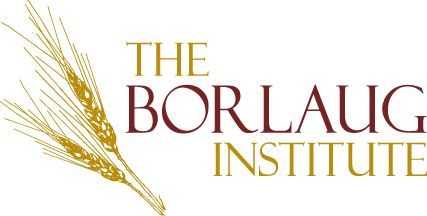COLLEGE STATION, TX — The largest project of its type for Texas A&M AgriLife aims to reconstruct a Central American coffee industry still recovering from the coffee rust disease epidemic that devastated the region to the tune of $1 billion in the harvest season of late 2012 alone.
The research project, an almost $5 million Global Development Alliance (GDA) with principal partners at Texas A&M University, will focus research efforts in coffee-producing regions of Central America, the Caribbean, and Peru.
The GDA is led by the Norman Borlaug Institute for International Agriculture and World Coffee Research (WCR) – sister programs of Texas A&M AgriLife Research.
Project partners include coffee research and development institutions from Costa Rica, Honduras, Guatemala, Panama, Dominican Republic and Jamaica (PROMECAFE), the Tropical Agricultural Research and Higher Education Center (CATIE), the Feed the Future initiative of the United States Agency for International Development (USAID), the French Agricultural Research Centre for International Development (CIRAD), and the Federal University of Viçosa.
The United States Agency for International Development’s Administrator Rajiv Shah said, “By partnering with innovators from College Station to Colombia, we can promote broad-based economic growth for the world’s most vulnerable people. Fighting epidemics like coffee rust empower entrepreneurs and create sustainable livelihoods for families – helping entire communities become self-sufficient.”
The project seeks primarily to rebuild livelihoods and food security for smallholder farmers whose income was ravaged by the rust epidemic. As such, research will focus on establishing a higher quality Central American coffee sector through plantation renovation with high quality, disease resistant coffee varieties and a constant pipeline of newer, higher performing varieties.
“The Borlaug Institute is confident in the team we’ve assembled to rebuild the Central American coffee industry through rebuilding its producers’ livelihoods and food security,” said Dr. Elsa Murano, interim director of the Borlaug Institute.
“PROMECAFE and WCR are confident in this GDA’s ability to turn things around for the Central American coffee producer who has been hit hard with a double whammy of Leaf Rust and Low Prices,” said Dr. Tim Schilling, Executive Director of World Coffee Research.
“Central America must shoot for the higher end of the market and this GDA will allow that to happen by providing high quality, rust resistant varieties tailored for specific eco-geographic zones.”
Although much of the work will be done in Central America, two coffee biotechnologists will work as post-doctorates at the Texas A&M Institute for Biotechnology and Genomics under direction of Dr. Martin Dickman, in the department of Plant Pathology and Microbiology in the College of Agriculture and Life Sciences.
An innovative rust bio-control approach will also be executed with the Federal University of Viçosa in Brazil and Kew Gardens in London.
The Central American coffee leaf rust crisis of 2012 was caused by climatic and pathological interactions further aggravated by the unpreparedness of the sector due to low coffee prices and underscored by the use of older, rust-susceptible varieties. Estimates by PROMECAFE, the regional coffee organization, reveal that overall coffee production is down by 20% compared to 2011.
Roughly half of the approximate 1M hectares of coffee acreage were significantly affected by coffee leaf rust resulting in lower production and less farmer income.
Current rust mitigation actions through fungicide spraying are essential to keep coffee production viable for 2014 and 2015. However, they do not provide the producer with a sustainable means of preventing future crises and corresponding production and profit losses without constant use of expensive fungicides.
“This multi-stakeholder initiative creates essential linkages between industry, research institutions and NGOs to provide coffee farming families with more tools and greater capacity to confront a growing number of threats to their coffee and their livelihoods,” said Lindsey Bolger, WCR Chairperson and VP of Coffee Sourcing and Excellence at Keurig Green Mountain.
“By engaging with WCR, coffee roasting companies like Keurig Green Mountain can leverage their interest in ensuring a long-term supply of high quality coffee while helping to address the immediate needs of coffee producing families and communities in Central and South America.”
Because Central America can grow in the specialty coffee sector as a major supplier of top drawer coffees for the most discriminating and lucrative markets, there are five priorities for the project. The first priority is to assist producers in making the best investment decisions in choosing varietals for plantation renovation.














